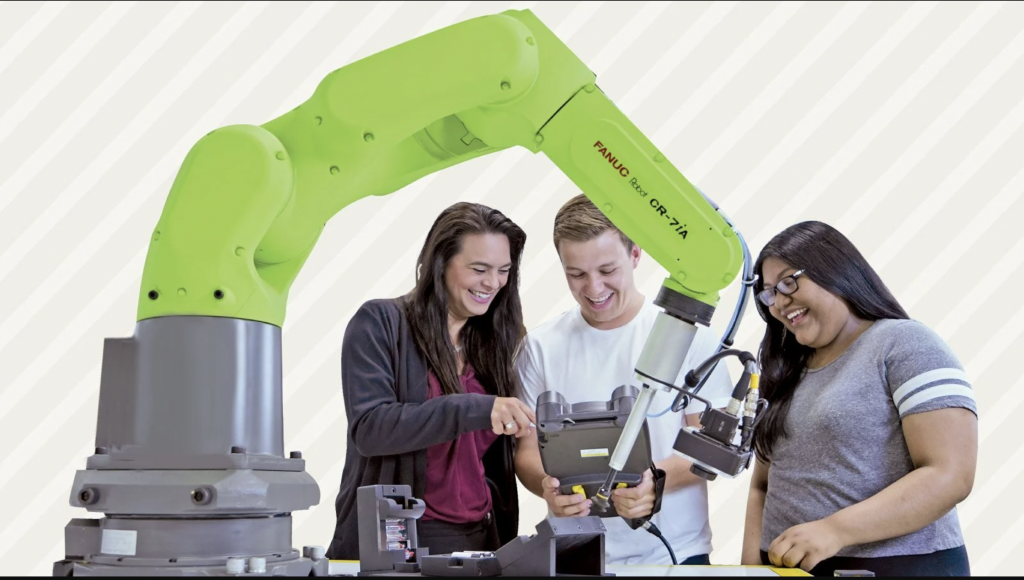
Humans and robots go to school together, says International Federation of Robotics
October 1, 2021
By Manufacturing AUTOMATION
 Photo: FANUC America
Photo: FANUC America The International Federation of Robotics (IFR) stated in a recent release that it has researched how robotics training shapes current and future workforce education and enhances skills development for employees.
“Automating dull, dirty and dangerous tasks is changing job profiles of factory workers for the better,” says Milton Guerry, president of IFR. “Academies run by robot manufacturers play a key role in making this transition possible. Employers send thousands of workers to robotics training every year.”
Robot manufacturers are driving education. Companies like ABB, Fanuc and Kuka register between 10,000 and 30,000 participants in their robot classes across more than 30 countries every year. Training programs range from basic programming for first-time users to complex workshops for experienced professionals.
“The automotive industry traditionally plays a leading role in upskilling workers for the use of robotics,” says Gerhard Muller, vice-president of global customer services at Kuka. “Volkswagen, for example, decided to host one of our Kuka colleges directly at their headquarter factory in Wolfsburg, Germany. We start with basic training for people who have never used a robot before. For professionals, we offer about 70 different modules ranging from basic operation and programming to complex commissioning of entire robot systems.”
According to Alexander Bongart, head of the Fanuc Academy Germany, training programs set up by international robot manufacturers develop key skills in the future workforce. He adds that the robotic certificates are globally valid and allows the workforce to pursue new career opportunities. This, he says, is true for SMEs as well.
Arno Strotgen of ABB`s robotics and discrete automation business, says that simulation software and augmented reality open up new ways of teaching. “The days, when everyone needed to be an engineer to handle a robot, are definitely over.”
IFR´s president Milton Guerry notes that governments now need to update their education policies. “The qualification to program and use a robot is an essential skill required of workers before they even enter a job on the shop floor. To enable the transition, robot manufacturers are the best possible partners, providing the right skills necessary to work with intelligent automation systems. The International Federation of Robotics invites public authorities to team up with the experts and to use their know-how to deliver education for the workplace of the future.”